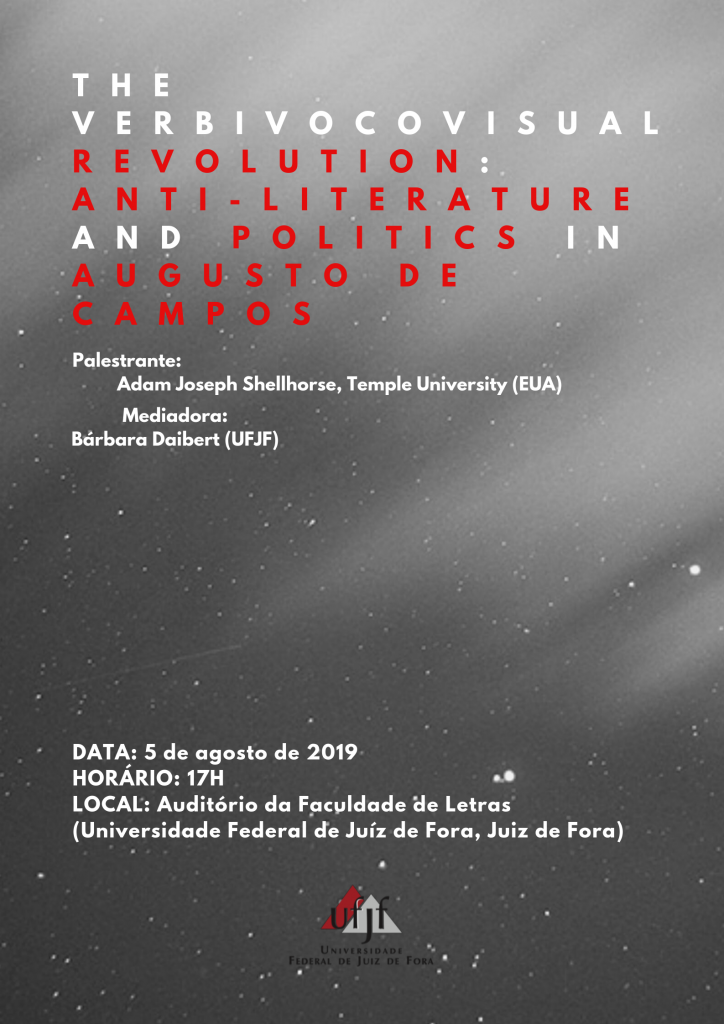The Verbivocovisual Revolution_ Anti-Literature and Politics in Augusto de Campos
Lecture Abstract:
Augusto de Campos’s critical fortune has been burdened by a deep-seated uncertainty: is his poetry really poetry or does it constitute a sui-generis, experimental anti-poetry? Utilizing a multiplicity of media to forge new techniques that explore the verbal, vocal, and visual dimensions of the poetic word–-from video and digital clip-poems, to pop, sculpture, painting, and avant-garde music–-, and rejecting the lyrical tradition of subjective expressivity for a minimalist approach, Campos’s variform work is anti-literary because it produces, with each new composition, heterogeneous poetic processes that defy what is conventionally meant by poetry. Through the construction of acentered, interdisciplinary structures, in Campos, poetry and political participation radically coincide. Akin to his paragon, the Russian poet, Vladimir Mayakovsky, Campos never ceases to underscore his solidarity: “sem forma revolucionária não há arte revolucionária.” And yet, Campos’s civic engagements have suffered the blows of disacknowledgment. The political implications of Campos’s oeuvre have likewise been shortchanged. Against the grain of his critics, I show that participation in Campos concerns, rather, the poem’s intervening capacity as an interdisciplinary ensemble of expression. By means of placing its elements in continuous variation, I affirm, following Deleuze, that Campos’s poems are events at the edge of language. Drawing on recent interventions on the p olitical potential of aesthetics in Latin American Studies, I conclude by situating Campos as an untimely figure of Latin American anti-literature.

